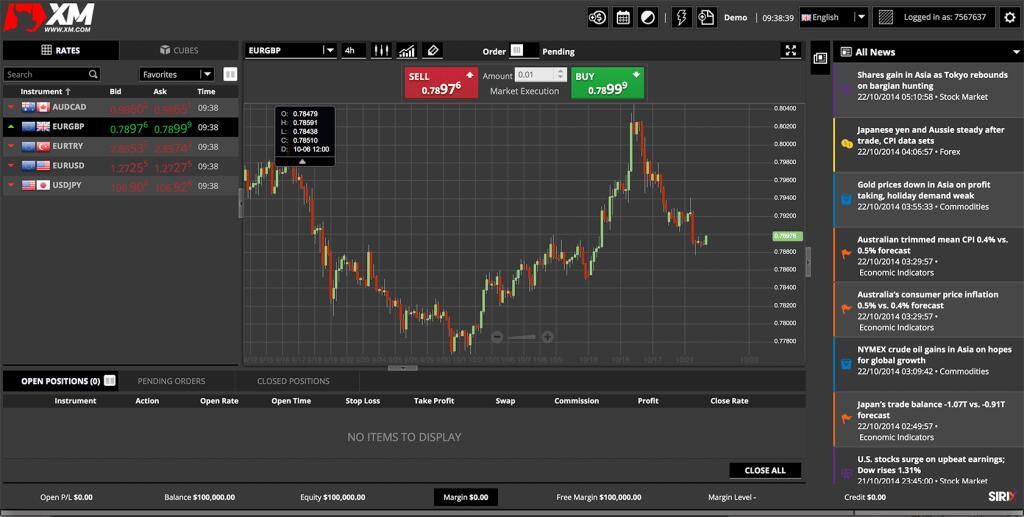
This is because you pay for it once for a specific period, depending on the agreement with the insurer. During such times, you will not have to pay for anything to have it, as it is rightfully yours. When you close the business or decide to cancel the policy, you can get some money back. A. Definition of Insurance Expense
Insurance expense refers to the costs that businesses incur in purchasing insurance to cover various risks that they may encounter in their operations. Insurance costs come in different forms, such as premiums, deductibles, and co-pays. These costs may differ significantly depending on various factors, including the size of the business, nature of operations, and level of risk.
They tend to work with a number of different companies and can try to get you the best quote. Many brokers can connect you to life, auto, home, and health insurance policies. However, it’s important to remember that some of these brokers may be motivated by commissions.
Should Vanguard Russell 2000 Value ETF (VTWV) Be on Your … – Nasdaq
Should Vanguard Russell 2000 Value ETF (VTWV) Be on Your ….
Posted: Wed, 06 Sep 2023 10:20:00 GMT [source]
When it comes to insurance being a liability, the concern goes to how relevant the policy is. If you are covering a risk which you hardly experience, you will end up paying for premiums but not utilizing them in any way. This is why doing a proper analysis of the policies is necessary before making a decision. We all keep taking insurance covers, renewing them and even looking for new insurers at some point. The bottom line is, we find insurance solutions worth investing in. The question is, how many take time to ask themselves whether an insurance service is an asset, expense, or liability?
Insurance contracts
In each of the next 12 successive months, the business charges $1,000 of this prepaid asset to expense, thereby equably spreading the expense recognition over the coverage period. The amount of insurance that was incurred/used up/expired during the period of time appearing in the heading of the income statement. The amount of insurance premiums that have not yet expired should be reported in the current asset account Prepaid Insurance. Many insurance policy types are available, and virtually any individual or business can find an insurance company willing to insure them—for a price. Common personal insurance policy types are auto, health, homeowners, and life insurance. Most individuals in the United States have at least one of these types of insurance, and car insurance is required by state law.
An insurance company’s annual financial statement is a lengthy and detailed document that shows all aspects of its business. An insurance company’s policyholders’ surplus—its assets minus its liabilities—serves as the company’s financial cushion against catastrophic losses and as a way to fund expansion. Regulators require insurers to have sufficient surplus to support the policies they issue.
- It also represents a liability, as the insurer must provide coverage for claims being made against the policy.
- Furthermore, major customers, including the US Government, will soon require sourcing from companies with credible targets.
- Casualty and liability insurance deals mainly with the company’s workers and anything that may happen to them while they are working.
- For example, if all restaurants are ordered to close by the government, then they may be able to claim under their insurance contracts.
- Homeowners insurance (also known as home insurance) protects your home, other property structures, and personal possessions against natural disasters, unexpected damage, theft, and vandalism.
This understanding is crucial in knowing how your financial documents will look. Mixing insurance and investment is something we should totally avoid. When your insurance agent chase you, does he sell you insurance products? Or does he offer you investment opportunities and tax-saving schemes? The insurance agents are driven by the first-year commission that they get and they are hardly bothered whether or not it is really right for you or not. In fact, that is the reason, why most of the investors we meet, say that they don’t see their agents after the first premium.
How Premiums Are Calculated
When you buy insurance, you purchase protection against unexpected financial losses. The insurance company pays you or someone you choose if something bad occurs. If you have no insurance and an accident happens, you may be responsible for all related costs. A life insurance policy guarantees that the insurer pays a sum of money to your beneficiaries (such as a spouse or children) if you die.
This is because accounting conventions require that insurance premiums are treated as expenses and, as such, do not represent the true value of the benefit received from the insurer. In summary, businesses need to understand the accounting treatment of insurance costs to make informed decisions on how to account for such costs properly. Understanding the types of insurance costs, their deductibility for profit and loss questions tax purposes, and the decision to capitalize or expense them is crucial for accurate financial reporting and informed decision-making. B. Deductibility of Insurance Costs
Insurance costs are generally deductible for tax purposes, provided they are incurred for business purposes. The deductible amount will vary depending on the type of insurance policy, the coverage limits, and the business’s revenue.
Special accounting standards also evolved for industries with a fiduciary responsibility to the public such as banks and insurance companies. To protect insurance company policyholders, state insurance regulators began to monitor insurance company solvency. https://online-accounting.net/ As they did, a special insurance accounting standards, known as statutory accounting principles and practices, or SAP, developed. The term statutory accounting denotes the fact that SAP embodies practices prescribed or permitted by state law.
Insurance Expense
Companies, especially those with assets in the U.S., must recognize the significant consequences they face from the physical impacts of climate change. It is imperative for businesses to take proactive measures, including implementing robust adaptation strategies and reducing greenhouse gas emissions, to mitigate risks and contribute to a more sustainable future for all. While insurance companies may invest in assets with varying levels of liquidity and returns, they are required to maintain a certain level of liquidity at all times. State insurance regulators set the number of liquid assets necessary to ensure insurers can pay claims. Under SAP, when a property/casualty policy is issued, the unearned premium is equal to the written premium.

For example, a $1,000 deductible means you pay the first $1,000 toward any claims. You pay the first $1,000, and your insurer pays the remaining $1,000. For instance, comprehensive coverage may or may not be the right type of auto insurance for you.
Is purchase returns an asset or liability?
Now we don’t have to explain that the commission that they make is actually deducted out of your investment and it could be as high as 70% of your premium. It is said that Rama, Krishna, Bhishma, and Buddha, knew the time when they would leave this world. To put simply, each of them come to live with their disciples with a mission or set of responsibility to fulfill. Does any one of us know when something will go wrong with us and whether that time our responsibilities to fulfill? Does any one of us know when something will go wrong with us and whether that time our responsibilities would be over or not? Our life is full of uncertainties with a lot of goals, short-term goals, long term goals, known goals – unknown goals.
The insurance cost must be expected to be recovered through future revenue or benefits generated from the asset or project. A. Definition of an Asset
An asset is an economic resource that an entity controls and benefits from, as a result of past transactions or events. An asset provides future economic benefits to the entity, which can be either in the form of generating revenue or reducing expenses. An insurance cost can either be treated as an asset or as an expense based on certain factors and considerations. In conclusion, insurance expense is a critical aspect that businesses cannot ignore. Insurance costs may raise eyebrows since they are significant expenses in any business.

Then, when the expense is incurred, the prepaid expense account is reduced by the amount of the expense, and the expense is recognized on the company’s income statement in the period when it was incurred. It makes prepaid insurance take part in the balance sheet equation as part of the assets. The best explanation for this is that it helps show the net worth of the business at a given time. When asked to count your purchases, you can comfortably include them with the actual value. Besides risk mitigation, insurance can also benefit businesses in a multitude of ways.
As with homeowners insurance, the lender may purchase insurance for you if necessary. The deductible is a specific amount you pay out of pocket before the insurer pays a claim. Deductibles serve as deterrents to large volumes of small and insignificant claims. Insurance proceeds may compensate a company for business interruption – e.g. for lost profits caused by a specific external event. The ability to claim these proceeds will depend on the specific terms of the insurance contract, actions taken by the government and interpretation of the applicable law.
7 Points To Ensure You Never Run Out Of Money During Your … – retirement.outlookindia.com
7 Points To Ensure You Never Run Out Of Money During Your ….
Posted: Mon, 04 Sep 2023 05:32:16 GMT [source]
An actuary assesses and manages the risks of financial investments, insurance policies, and other potentially risky ventures. Actuaries assess particular situations financial risks, primarily using probability, economic theory, and computer science. Most actuaries work at insurance companies, where their risk-management capabilities are particularly applicable in determining risk levels and premium prices for a given insurance policy. Some assets are “nonadmitted” under SAP and therefore assigned a zero value but are included under GAAP.
Insurance Expense vs. Insurance Payable
Since then GAAP has increasingly addressed investors’ need to be able to evaluate and compare financial performance from one reporting period to the next and among companies. Insurance helps to protect you and your family against unexpected financial costs and resulting debts or the risk of losing your assets. Insurance helps protect you from expensive lawsuits, injuries and damages, death, and even total losses of your car or home. If you have chronic health issues or need regular medical attention, look for a health insurance policy with a lower deductible. Though the annual premium is higher than a comparable policy with a higher deductible, less-expensive medical care year-round may be worth the tradeoff.
